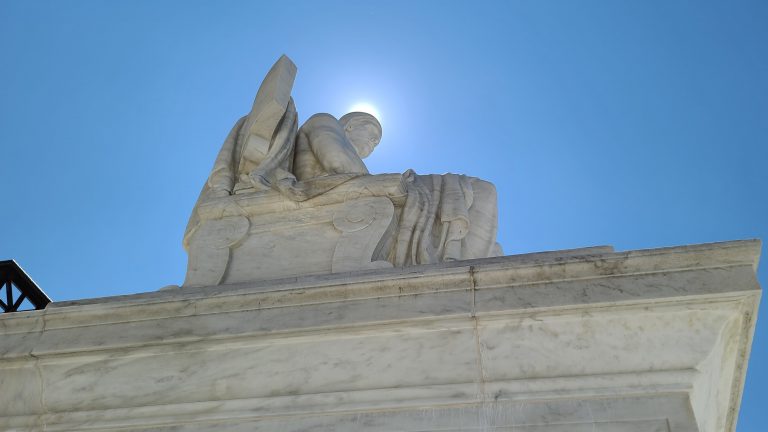An attempt by California lawmakers to limit challenges to their gun laws is now being… challenged in court.
A coalition of gun-rights groups asked a federal court to block Section 2 of SB-1327, a new state law that imposes the cost of litigation on those who challenge gun restrictions in more cases, before it goes into effect at the beginning of next year. The law allows state government officials to seek legal fees from plaintiffs if they are unsuccessful on any of their claims. It creates a situation where plaintiffs may have to pay the state’s legal fees even if a court agrees to strike down the law they challenged.
“The California Legislature and Gov. Gavin Newsom may think they can ride roughshod over the Constitution,” Alan Gottlieb, Second Amendment Foundation (SAF) founder, said in a statement, “but they really can’t, and we’re hoping the court quickly erases any doubt.”
A spokesperson for Governor Newsom (D.) declined to comment and a spokesperson for Attorney General Rob Bonta (D.) said he will “file any response to plaintiffs in court.”
If successful, the challenge would deal yet another blow to California’s attempts to restrict firearms through laws that give little consideration to the Supreme Court’s rulings on gun rights. It would also cast doubt on a similar provision in the recent Texas abortion bounty law that inspired its passage. However, if California’s law survives federal scrutiny, it could severely reduce the number of challenges to the state’s strict gun laws and encourage further copycat measures on hot-button issues throughout the country.
The Firearms Policy Coalition, and Calguns Foundation, filed the “All Writ” petition alongside SAF and several individual and business plaintiffs. The petition was filed as part of a case against the state’s ban on 18-to-20-year-olds buying AR-15s and other semi-automatic rifles, which a judge ruled unconstitutional in May. The plaintiffs in the case, called Jones v. Bonta, argue the law turns traditional litigation on its head in an attempt to restrict Californians’ access to the federal courts.
“By its plain terms, Section 2 applies only to suits that seek ‘declaratory or injunctive relief’ against the enforcement of any ‘law that regulates or restricts firearms,'” they said in the filing. “And it provides the potential for an attorneys’ fee award only to defendants in such suits; a plaintiff ‘shall not be deemed a prevailing party.’ And the trigger for making the government a ‘prevailing party’ entitled to fees is the dismissal or entry of judgment for the government on any claim in the case, no matter how inconsequential in the context of the broader litigation.”
That could force the plaintiffs to pay for the government’s legal fees in their case against the under-21 AR-15 ban because they lost on the question of requiring a hunting license for the same age group to buy any rifle or shotgun. The plaintiffs offered an even more stark example of a court win where California could force them to pay the government’s legal fees.
“Plaintiff Firearms Policy Coalition, Inc. ‘FPC’ recently secured a victory in the Northern District of Texas on a claim that Texas’s law making it illegal for 18-to-20-year-olds to carry firearms in public is unconstitutional. Because FPC won on this broad claim, the court dismissed as moot an alternative, narrower claim that the law was unconstitutional as applied to women. Id. In the upside-down world of Section 2, the defendants in McCraw would be considered “prevailing parties” despite the plaintiffs having secured all of the relief they sought in the litigation. Finally, in a further departure from typical fee-shifting statutes, Section 2 creates an independent cause of action allowing “prevailing” defendants to seek fees in state court and provides that issue preclusion will not apply if the court in the underlying action held that Section 2 is invalid.”
The plaintiffs argued the law violates a collection of core civil rights, not just the Second Amendment.
“We are taking this unusual step because of the chilling effect this new law has on challenges to state gun laws,” Gottlieb said. “Section 2 of the new statute is preempted by the Supremacy Clause of the U.S. Constitution. It violates the First Amendment, which, among other things, protects the right of the people to petition the government for a redress of grievances. [W]ithout access to the courts, citizens cannot defend any of their rights. Contrary to what the state may argue, this isn’t about guns; it’s about rights.”
The “All Writ” petition asks the federal court to block the enforcement of California’s law in relation to the plaintiffs’ suit against the state’s age-based AR sales ban. Jones v. Bonta was remanded to the federal district court on Wednesday for new hearings in light of the Supreme Court’s Bruen decision. The “All Writ” petition was dismissed without prejudice, and can now be refilled with the district court.
UPDATE 9-7-2022 10:11 PM EASTERN: This piece has been updated to include comment from AG Bonta’s office, and an update on the status of Jones v. Bonta.






